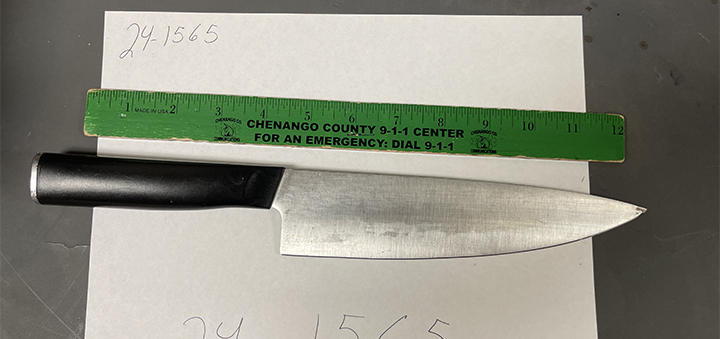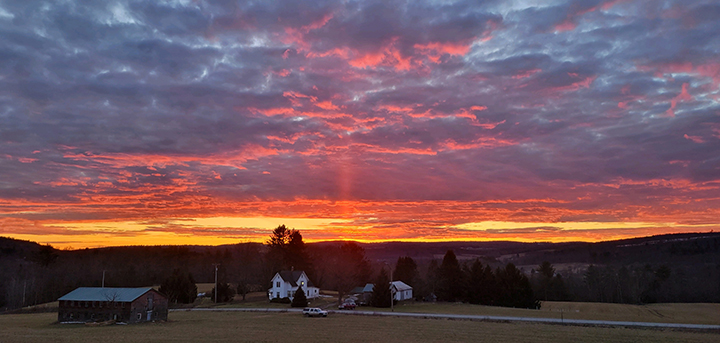Why Did The Apple Cross The Road?
Published:
September 9th, 2015
By:
Jim Mullen
My big-city cousin Bernice brought her 4-year-old son up to the farm for a visit.
One afternoon, we were out under the apple trees in the backyard, taking in the view from the garden. The ground was littered with ripe apples that had fallen off the trees. Little Billy reached down, picked up an apple and started to take a bite out of it.
Bernice grabbed the apple out of his hand and snapped, "Don't eat that! You don't know where it's been!"
As far as we know, that might be the only time in Billy's life when he knew exactly where his food had been. Years ago, before Billy, Bernice had visited us at Christmas. Sue had boiled up some potatoes to go with the feast, and she asked Bernice to mash them. Bernice looked in the pot and said, "I didn't know mashed potatoes came from potatoes. I always thought they came out of a box."
Sue and I wondered how Bernice must imagine where her food comes from. Does she picture large trees, their branches laden with boxes of frozen pizzas just waiting to be harvested? Fields full of migrant workers picking cans of peas and beans off the vines? Steaks and hamburgers grown ready-wrapped and pre-priced at a spotless, odorless, stainless steel factory called Beef City, where the food materializes like Captain Kirk's dinner on "Star Trek"?
But really, why shouldn't Bernice be confused? I am, too. In the produce department of one supermarket recently, I noticed that all the apples had little stickers on them that said "New Zealand." They are wonderful apples, but we grow plenty of apples right here. Are we really expected to believe that it's cheaper to get produce from New Zealand than from around the corner?
Now that I've started noticing, it's easy to find lots of strange, long-distance food stories. Four different bulk tanker trucks come up my rural dirt road every day to collect milk from the dairy farms. And where does all that fresh milk go? One truck goes to an out-of-state cheese factory, one goes to a butter plant, one goes to a company that makes dry soup mix and one goes to another plant 150 miles away. You might say to yourself, "Wouldn't it be cheaper to have one truck take all that milk to one place?"
Oh, you poor, silly goose. You hopelessly old-fashioned twit. You will never make it in today's high-tech world of agriculture. The whole idea of farming today is to grow the food as far away from where it'll be eaten as possible. That is why they sell Florida tomatoes in New Jersey, fresh swordfish in Omaha, Israeli oranges in Florida, Chilean wine in California, California lettuce in South Carolina, New Zealand apples in New York.
Ten miles from my home, there's a big factory that makes soft-serve ice cream. You might think they would get their milk from the dairy farms within a half-hour's drive. Of course not. They get their milk from someplace seven hours away by truck. Our local milk is too close by -- totally unsuitable.
I used to think my farmer neighbors were laughing at me because I was a city person and didn't know anything about where our food comes from. Now I think they're laughing at me because I'm a city person and I do know where our food comes from.
Still, the thing with the apples bothered me. So I asked my grocery store manager if he could make the effort to buy local apples from now on. He looked at me like I was a French communist.
"What are you trying to do?" he said. "Put the small family trucker out of business?"
Author: Jim Mullen - More From This Author
Comments
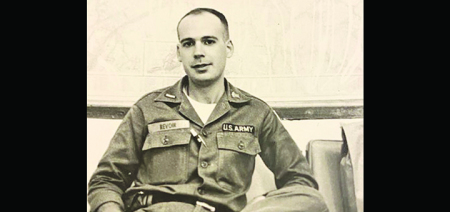
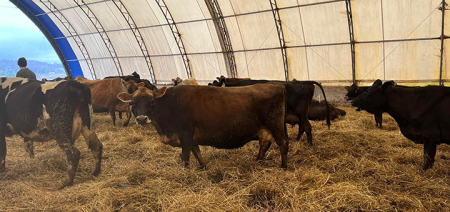
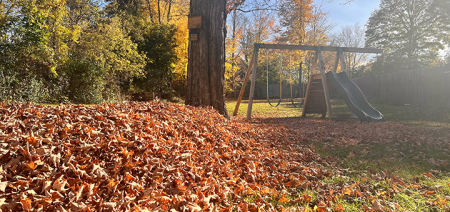

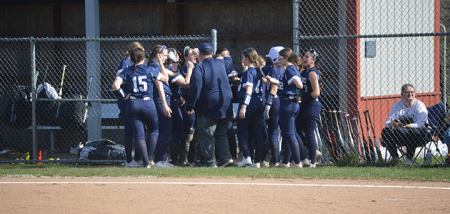
(1).jpg)
